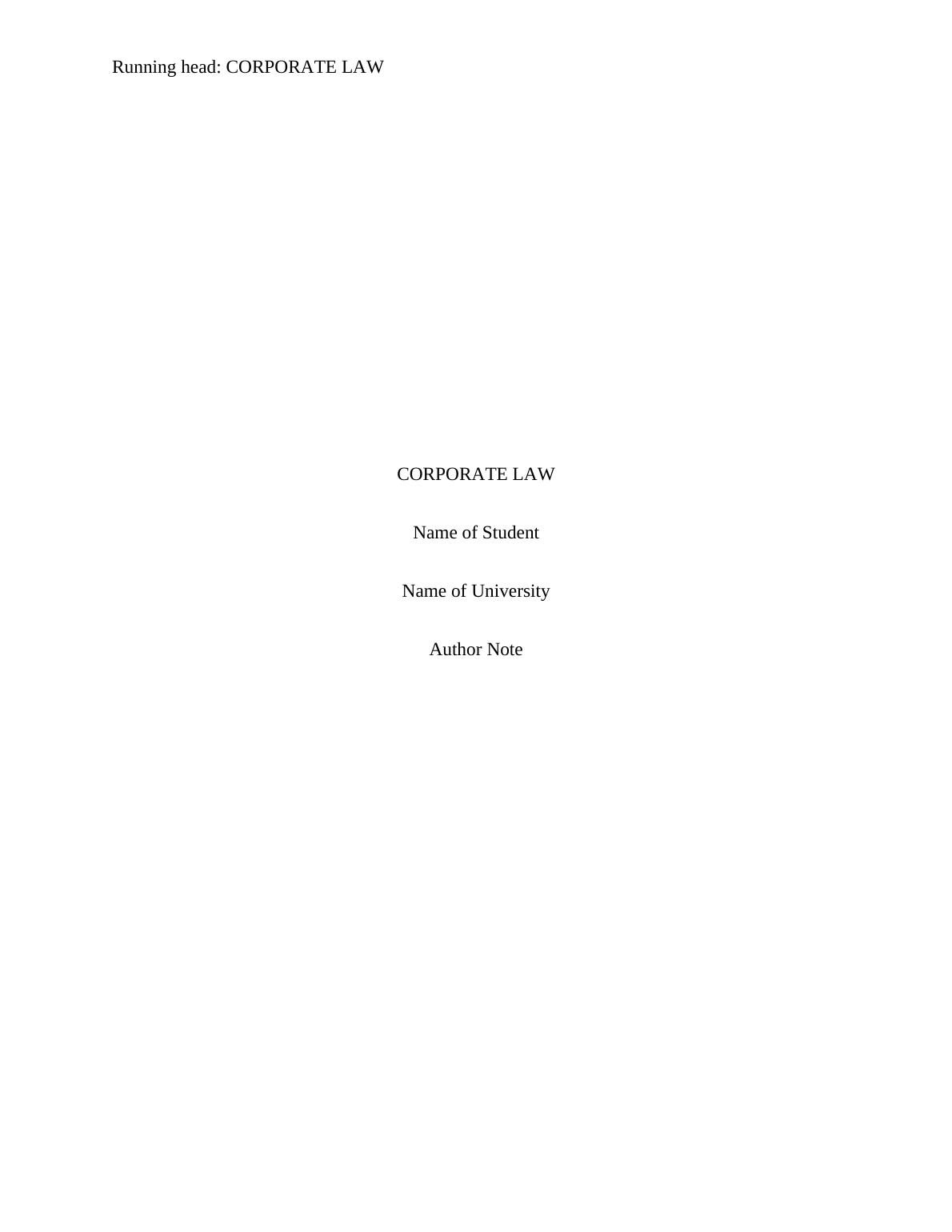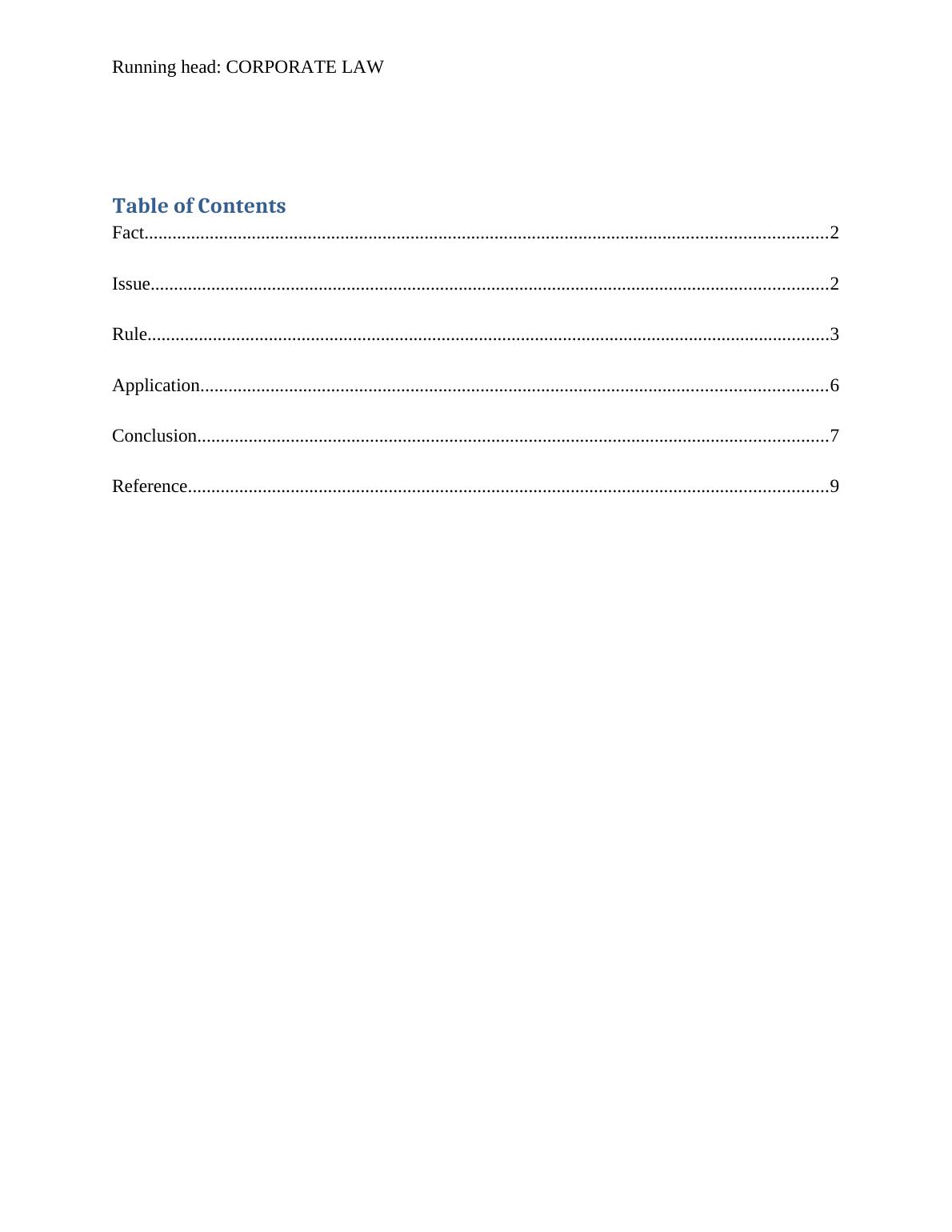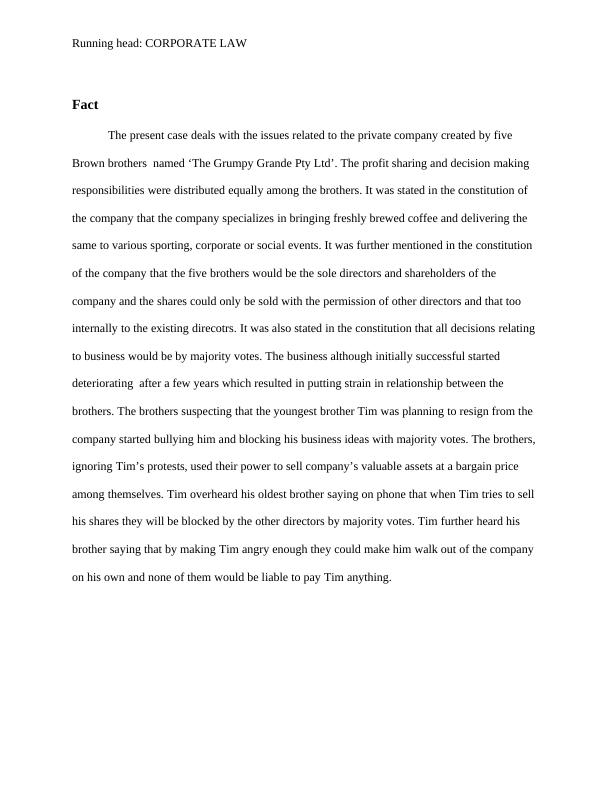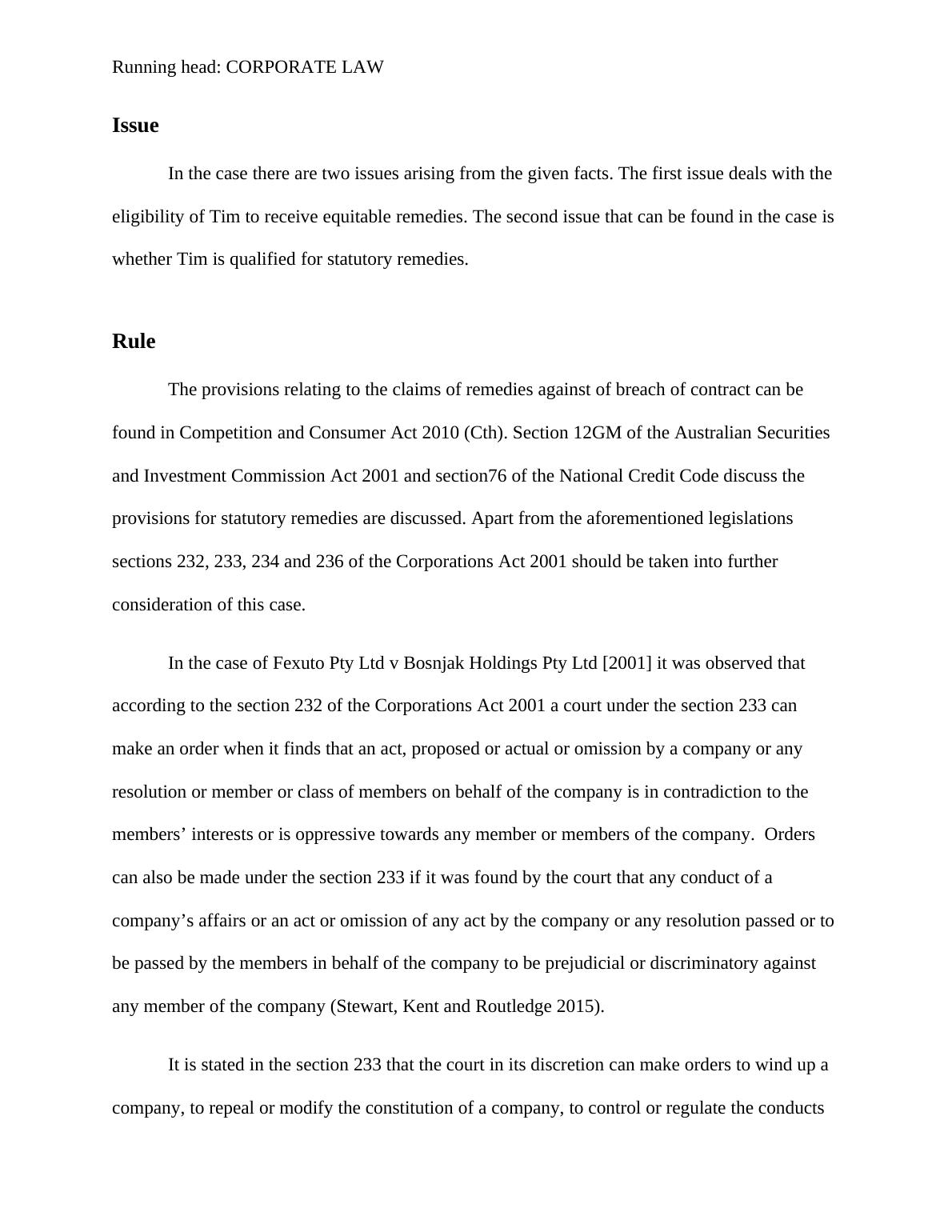Corporate Law: Eligibility for Equitable and Statutory Remedies
11 Pages2337 Words193 Views
Added on 2022-11-26
About This Document
This article discusses the eligibility of Tim to receive equitable and statutory remedies in a case of breach of contract in corporate law. It explores the provisions of the Corporations Act 2001 and other relevant legislation, as well as the principles of equitable and statutory remedies. The case involves a private company created by five brothers and the discrimination and oppression faced by the youngest brother. The article concludes that Tim has the option to claim for both equitable and statutory remedies.
Corporate Law: Eligibility for Equitable and Statutory Remedies
Added on 2022-11-26
ShareRelated Documents
End of preview
Want to access all the pages? Upload your documents or become a member.
Corporate Law: Equitable and Statutory Remedies for Oppression and Discrimination
|9
|2372
|38
Corporate Law: Remedies for Oppression and Unfair Discrimination
|9
|2668
|94
Corporate Law
|8
|2218
|49
Business Law
|9
|2257
|132
Corporate Law: Equitable and Statutory Remedies for Breach of Director's Duty
|9
|2378
|154
Corporate Law
|9
|2042
|364




